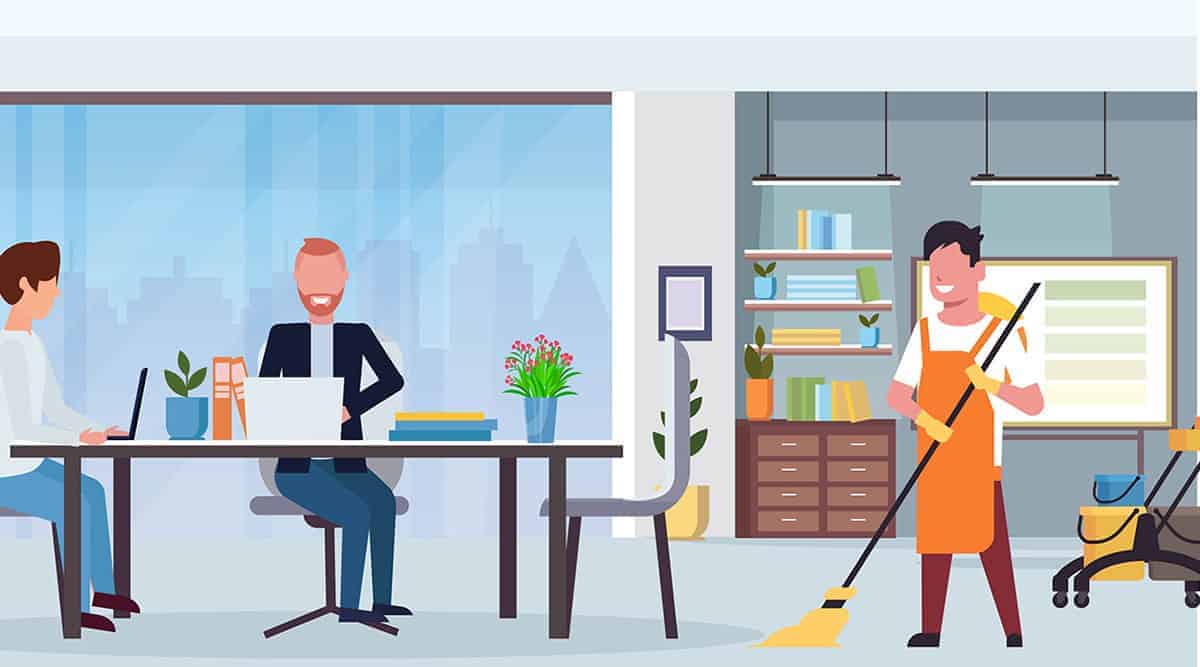
2020 has not been an easy year for anyone. We’ve all had to change and adapt to a ‘new normal’. And as 2021 arrives, it certainly looks like ‘uncertainty’ will be a part of our lives for a little while longer.
But through the adversity, there’s been strength and innovation. And we’ve seen the perseverance to ‘keep calm and carry on’, especially in the cleaning sector.
How will the cleaning sector change in 2021?
Low demand and high demand
Coronavirus continues to impact us all. Even with the reality of a vaccine now upon us, the tier system is still in place creating uncertainty for many businesses.
In the cleaning sector, this has meant fluctuations in demand from business to business and this is likely to persist in the new year:
- It’s been a hard road for hospitality, and the tier system will continue to dictate the level of demand for cleaning services
- Sports, leisure and retail venues have been given a lifeline with recent policy changes, so demand will slowly pick up pace
- Vital services such as schools, hospitals and offices will continue to require a high level of service
A change of focus
Whether it’s adopting new tech, providing additional services or implementing new processes, going forward, businesses and employees in the cleaning sector will need to be as agile as possible.
Some of the new areas of focus for cleaning operatives include:
- Extra attention to contact surfaces such as door handles and taps
- More frequent and reactive cleaning regimes – in line with client requests or government guidance
- Additional objects to clean, such as transparent screens and dividers
A boom in daytime cleaning
Cleaning operatives that used to clock in after everyone else clocked off are now working side-by-side with their daytime colleagues. It’s a big change for an industry that has become comfortable with unsociable hours and lone working. So what does this mean for the sector in 2021?
A move to daytime cleaning provides benefits such as:
- Ongoing reassurance to colleagues using workspaces throughout the day
- Immediate response to cleaning incidents and more personal service for clients
- The potential for clients to lockdown offices at night time – reducing overheads for security and lighting
- A greater pool of talent – those that were not comfortable with lone working or unsociable hours will feel more comfortable joining the sector
Automation to support workers, not replace them
While the rest of the world starts to open their eyes to the power of automation, the cleaning industry was an earlier adopter. But this year we’ve seen an explosion in smart tech and digital solutions that has blown our minds!
Here are some of our favourite innovations:
- Smart tools that can provide managers with real-time information about the status of soap, paper, and towel dispensers
- Touch-free soap and hand sanitiser pumps
- Robotic custodians to perform high-risk duties that humans would be unable to perform
- Digital workforce management tools like IQ:timecard to share timesheets, tasks, location data.
A shift in approach to wellbeing
Research by employee benefits provider Unum has found 86% of UK employers surveyed are changing their approach to employee health and wellbeing. Almost all employers surveyed (95%) say it has impacted their need to make people feel more protected and supported.
There’s not a one-size-fits-all solution, but when it comes to using tech to support wellbeing, the cleaner sector can lead the way:
- Accommodate more flexible schedules for employees – allowing employees to work shifts that suit their lifestyles (using e rostering software to manage the process)
- Have an easy-to-use mobile app or workforce scheduling tool to help operatives keep in touch with their managers and feel supported at all times
- Ensure employees at all levels are included in the adoption and roll-out of new tech solutions – to ensure they feel valued and listened to
In 2021 we are walking into the unknown. But for us, we can’t think of a sector better prepared to guide us safely into the future. Ready to embrace electronic call monitoring? Talk to us about IQ:timecard today.